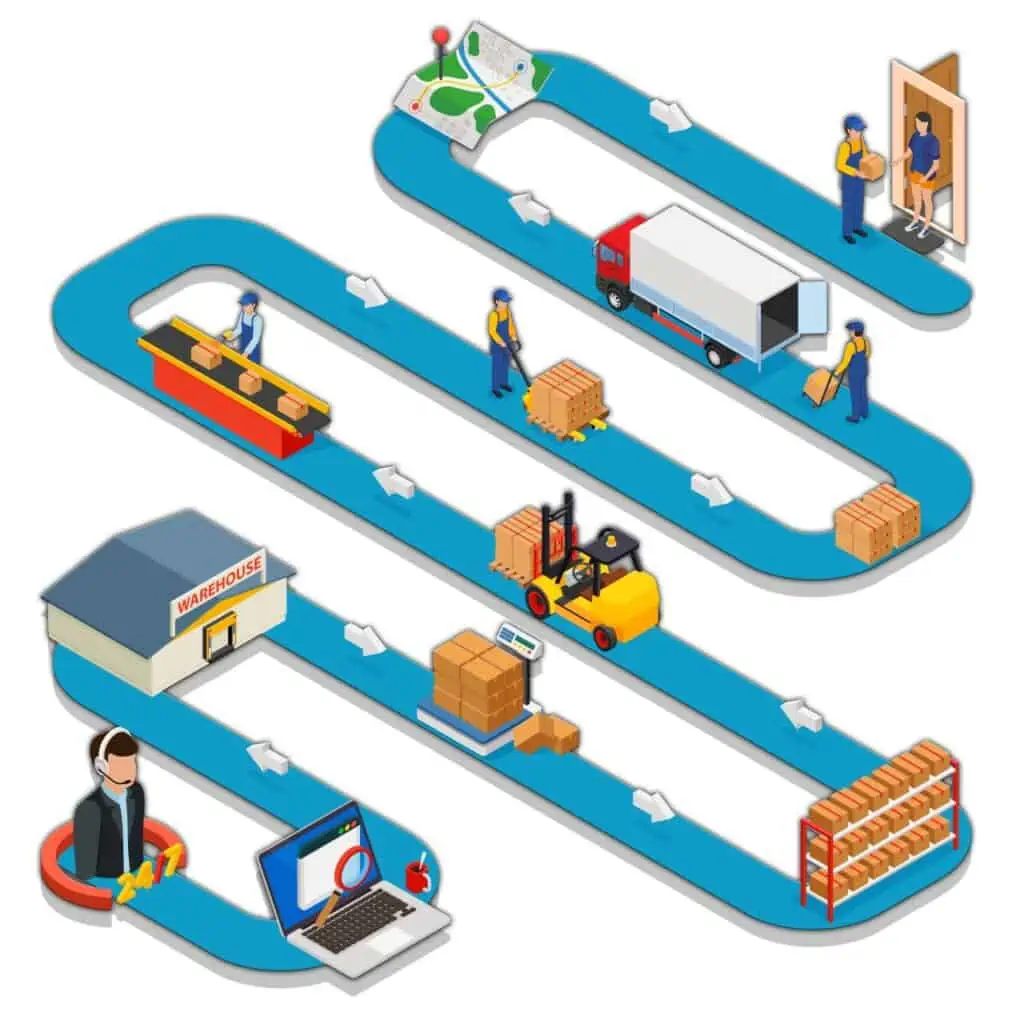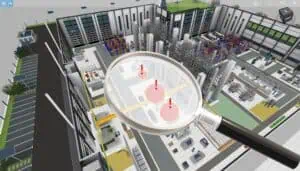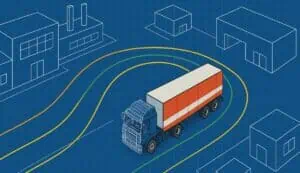Efficient logistics pay off in many branches
Your logistics arrangements may function satisfactorily, but are they also competitive? You may think that logistics planning is only something for global enterprises, but is there not also untapped potential waiting to be utilized in smaller companies? We would like to show you what logistics planning entails and which branches, in particular, can benefit from efficient logistics.

- Identifying weak points in the company with logistics planning
- Comprehensively planned logistics to secure future competitiveness
- A digital solution spotlights potential and opportunities
Without seamless logistics, it is hardly possible for any company to operate profitably. Necessary processes must run smoothly and efficiently. Stoppages and non-productive times must be reduced to a minimum. That applies across the full spectrum of industry and business, from heavy manufacturing to hospitals. The tool which keeps the wheels turning is logistics planning. And this benefits not only international logistics providers, but also more and more individual businesses – irrespective of branch and company size.
What is logistics planning all about?
The core objective is to become and/or remain competitive. In addition, logistics planning enables you to derive and develop strategies for the future of the company. To this end, all your company transport and storage processes are planned and controlled. The aim is to ensure that all materials and resources can be made available in appropriate forms and quantities, whenever and wherever they are needed.
Generally speaking, the process is realized on two levels – one strategic, the other operational. Strategic logistics activities takes a longer-term perspective. This includes concepts for locations and investments in production equipment aka resources. Shorter- and medium-term developments are topics for operational logistics planning. In this context, personnel planning and the efficient use of transport equipment are aspects which play a decisive role. Calculations of production volumes are similarly relevant.
One of the most important tasks for operations management, alongside forecasting of the expected logistics costs, is day-to-day planning of the logistics processes or operations. This also serves as a basis for the planning of material flows within the transportation network. These represent transportation of material, semi-finished and finished products. Furthermore, investments can be calculated predictively with regard to their specific influence on production. The outcome of detailed logistics planning is a plan which embraces all company goals of the operations management. It will also cover all the individual steps in production logistics: From delivery of the raw materials required for manufacturing, through to provisions for shipping of the finished product. The transportation of material resources over the shortest possible distances is becoming a decisive criterion for the quality of logistics management and corporate strategy.
The branches where logistics planning is particularly relevant
For which branches of industry and for which kinds of companies is this process actually relevant? In fact, for all companies that are part of a supply chain! For the most part, it is not important whether you are an international logistics provider or just a local manufacturer. The supply chain starts with the order processing and ends with the timely delivery of the manufactured products to the customer. All processes or steps within the supply chain are the subject of the logistics strategy and part of the range of tasks of a logistics manager and logistics planner. The dependencies arising from an increasingly interconnected, global logistics system mean that there are only very few companies which are not affected within the supply chain.
Logistics planning is thus beneficial for companies which are involved in raw material procurement. Warehouse planning can be supported, for example, and efficiency is improved. Material flows, on the other hand, are the subject of optimization in transportation networks of manufacturing industries. And at the end of the supply chain, companies whose focus is placed on goods handling can organize the operations in their finished parts and product warehouses more efficiently. And in the end, the focus is always on the customer, who expects a timely delivery of his ordered goods. Whether it’s a car, a pair of shoes, or a bag of cat food, it doesn’t matter. In other words: Practically every company is able to benefit from professionally planned logistics.

Significant advantages from good logistics
The process of professional logistics planning and management yields a decisive advantage: You determine parameters by which you can evaluate the capabilities of your logistics set-up. Logistics performance can be assessed objectively and material flows are measurable at all points of the chain. The targets defined are unambiguous and above all quantifiable. It is thus possible to identify progress and success. Likewise further optimization potential. Deficiencies are easier to remedy and the efficiency of the entire supply chain is enhanced.
Once all the bottlenecks, difficulties and inefficiencies have been identified, logistics planning is able to play out its particular strengths. Planning should never be viewed as a static blueprint, but must instead remain flexible and variable. An efficient logistics solution can then be adapted easily to new challenges, without facing the same problems over and over again. Only minimal further input is required to keep your logistics fit for the future.
Via logistics planning to an optimum layout
So how can we successfully transform an existing structure to implement flexible and efficient logistics planning? This task is practically impossible using classic methods. Increasing integration of the individual logistics processes is also making planning more and more complex. Transport and storage costs are directly dependent on the corresponding order quantities, the stock turn rate has direct influence on the storage and handling costs, and so on.
Changes to one process step frequently necessitate further modifications at other points of the process. The increasing number of dependencies within material flows means that there is no real alternative to software-assisted planning. The solution is thus digital logistics planning.
This enables not only detailed planning, but also the integration of further logistics-related activities, for example warehouse layout design. In addition, a corresponding software package also permits strategic considerations to be taken into account. On the one hand, valid medium-term forecasts of logistics costs are possible. At the same time, future developments can be planned for different scenarios – with a clear focus on securing and strengthening competitiveness.
The solution for growing demands
An efficient logistics set-up is the basis for company success in many branches of industry as part of the supply chain. By applying typical methods of factory planning, digital logistics planning is able to identify weak points and unlock potential. The possibilities cover the optimization of all logistics processes. Ultimately, professional planning also lays a foundation for your future competitiveness and to create a happy customer.

Are you interested in learning more about how professional planning could also contribute to optimization of the logistics in your company? Subscribe to our blog to benefit from our many years of experience in the field! We would be delighted to be your guide.
No problem, simply subscribe to our Blog-News!
further articles on the topic:



